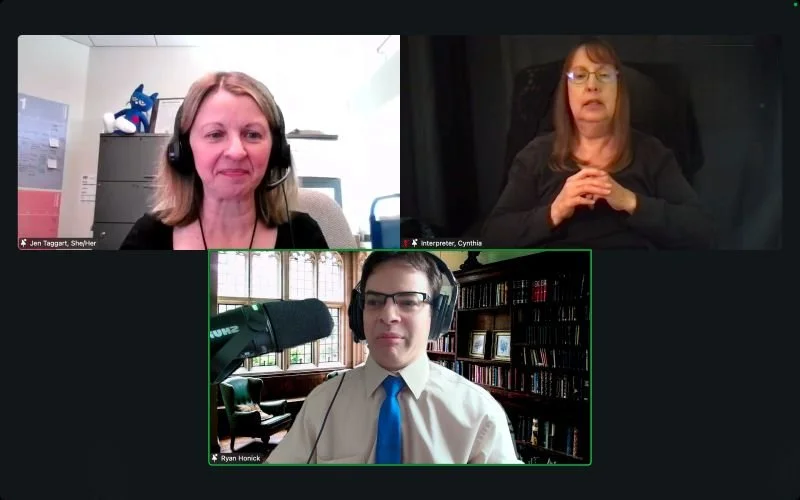3D rendered digital human head outlined with neon contour lines that resemble a fingerprint's unique swirls, against a deep blue background.
AI isn’t replacing workers. Policy is.
And when cuts come, disabled employees are too often first in line. Not because we can’t do the work. But because we asked for accommodations, or a flexible schedule. Or the audacity to be seen as fully human in a system that was never built for us.
Amazon laid off 14,000 corporate staff, most weren’t on the warehouse floor. As Fortune reports, they were middle managers, analysts, people whose work once held institutional memory. And while AI was the scapegoat, the real driver was a quiet shift in values: replace people with productivity.
Let me say it plainly: Every time efficiency comes at the cost of someone’s humanity, you lose.
Because here’s what AI will never replace:
• A colleague who notices and acts
• A mentor who listens without needing to understand everything
• The gut sense that something feels off—and the courage to say so
• A disabled employee who sees the policy gap before it creates harm
Try feeding that into OpenAI.
Accessible workplaces don’t happen by default. They’re built, sustained, and protected often by non-disabled colleagues whose advocacy carries more weight, simply because of the math. When the 80% speak up, momentum shifts. But the burden shouldn’t fall solely on disabled people. We’ve been saying the same things for years. Now we need others to help carry it forward.
I’ve watched colleagues pushed out for asking too many questions, for requesting an accommodation, or for simply challenging the status quo. And I’ve watched those same institutions spin it. “Moving in a different direction,” “transitioning,” “resigned to pursue other opportunities.” But those of us inside? We know how to read between the lines.
Gartner projects that 1 in 5 organizations will eliminate half their management layers using AI by 2026. That is a loss of human infrastructure, especially for marginalized communities who rely on advocates inside the system to challenge the status quo.
DEI isn’t a brand strategy. It’s a values system. And when it disappears, it erases people. And voices. And momentum.
“You can certainly change your branding, but you can’t change your values without it having a resounding effect,” former Georgia state representative and candidate for governor Stacey Abrams told The Washington Post.
So as AI reshapes our workplaces, let’s ask better questions.
What stories about work and value do we need to unlearn? Are we innovating for everyone, or just for the most efficient few?
Innovation that forgets its people isn’t progress. It’s loss.
AI may generate text. It will never generate trust.
Let’s keep the human at the center of the future we’re building.





